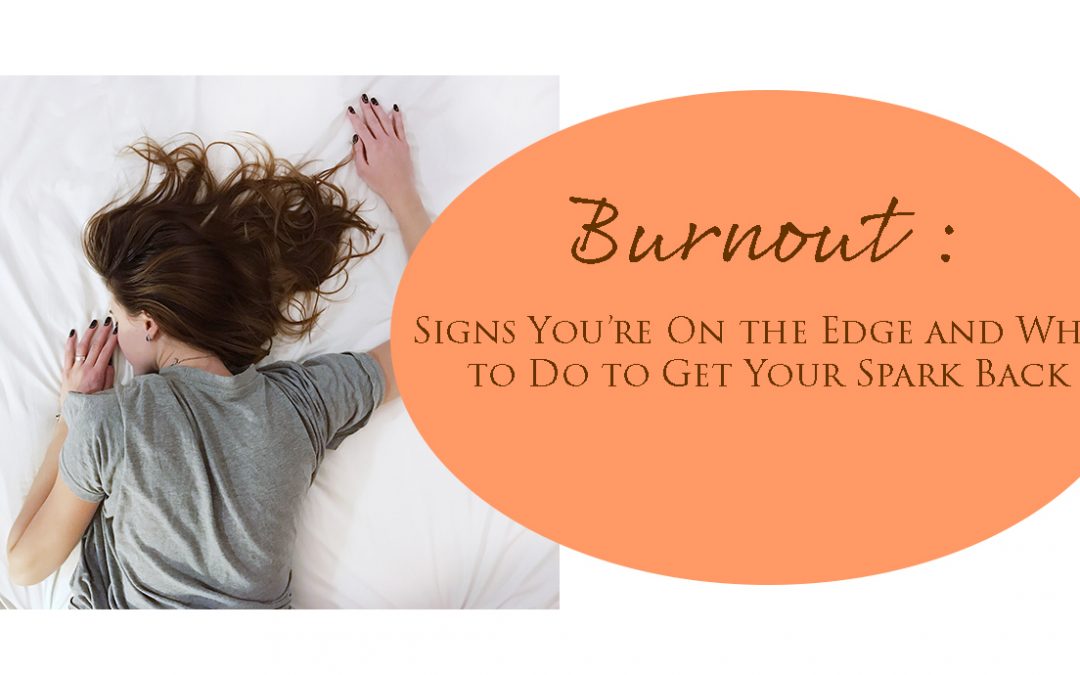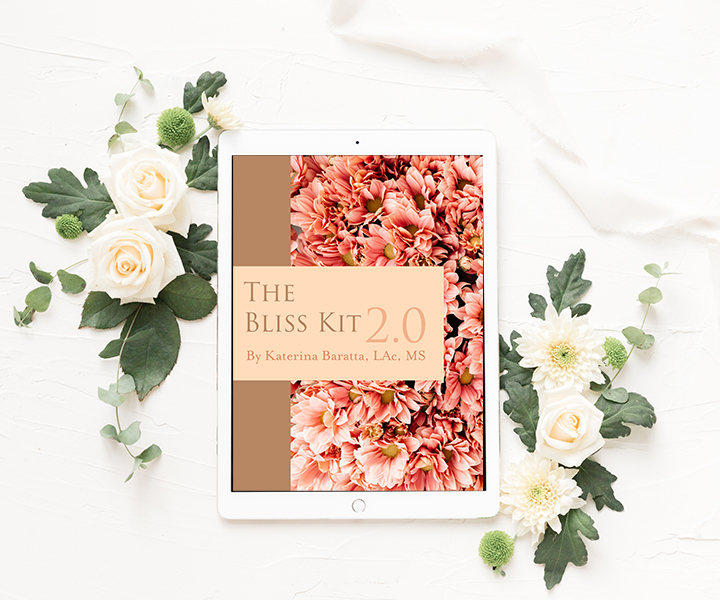Burnout happens when you’ve been stressed out for too long.
It’s like someone stole the fire that used to light up your life.
When you’re experiencing burnout you feel exhausted, unmotivated, discouraged and fed up.
You remember what it was like to have a twinkle in your eye, to be excited about all the possibilities and puff your chest up as you prepared yourself to conquer all the challenges.
But with burnout, you have nothing left to give.
It all just feels too hard, and you start to wonder if it’s really worth it.
The problem is that you haven’t given yourself enough time to replenish your inner reserves.
And this has been going on for so long that your well has gone completely dry.
Which is why the key sign of burnout is exhaustion.
Burnout usually refers to career exhaustion, but signs of burnout can show up in any situation where the demands outweigh the rewards.
Most of us have experienced burnout at some point in our lives.
Maybe you used to really love blogging, but as the technical difficulties piled up and your reach started to dwindle you decided to give it up.
Or maybe you used to love fostering puppies, but then you started grad school and had a baby and couldn’t handle the midnight pee breaks on top of all the other forms of sleep deprivation.
Still, the people who are most prone to burnout tend to be those who spend the majority of their time doing emotionally demanding work.
It’s especially prevalent amongst social workers, healthcare workers, parents and other caretakers. (1, 2, 3)
And this is a big problem for everyone if it goes on for too long.
Because whatever it is you spend your time doing, if you’re fighting against yourself to do it you’re using up most of your energy on inner conflict.
This isn’t just exhausting, it can actually make you sick.
Lingering in a state of chronic stress and burnout can be dangerous.
From a biomedical standpoint, burnout can lead to high blood pressure, heart disease, diabetes and other illnesses. (4)
Burnout also means you can’t show up for life the way you want to.
The best version of you isn’t available because all your energy is spent.
And you often find yourself acting out in ways that lead to even more inner conflict.
The 11th Revision of the International Classification of Disease (ICD-11) describes burnout as a syndrome that leads to exhaustion, negative feelings, and reduced efficacy. (5)
But there are lots of burnout signs to look out for:
- Exhaustion: You’re tired. Your body is tired. Your mind is tired. You have a hard time waking up in the morning and you feel like you’re dragging all day.
- Irritability: You’re so emotionally spent that little issues blow up instead of just blowing over.
- Anxiety: Thoughts of the future, uncertainty, and guilt overwhelm you.
- Insomnia: You have trouble falling asleep, staying asleep, or both.
- Lack of purpose: When your work feels more overwhelming than rewarding it’s normal to wonder what the point of it all is.
- Lack of willpower: You’ve stopped caring and have a hard time motivating yourself to do all the things you think you “should” be doing.
- Difficulty concentrating: The opposite of flow state, burnout makes you feel like you have to force yourself to stay on task.
- Foggy-brain feeling: Your head feels like it’s in a cloud
And since burnout is the result of chronic stress, there are far-reaching physical consequences too.
Some physical signs of burnout to look out for include:
- Being sick all the time
- Headaches
- Digestive trouble
- PMS
- TMJ
- Muscle tension
- Dull achy feelings in the body
If you notice any of these popping up, don’t brush them off.
Signs and symptoms are your body’s way of telling you that something is off-balance and needs to change ASAP.
Because you’re supposed to thrive.
You’re supposed to enjoy life.
And there are lots of things you can do to heal the signs of burnout and get your spark back.
Here are some suggestions to get you started :
Reevaluate your priorities.
If you’re experiencing burnout, something’s gotta give.
You’re running on empty my friend, and if you don’t replenish yourself you will literally break.
So put off that next episode of This Is Us for tonight and use that time Marie Kondo-ing your life.
What parts of your life spark joy?
What did you love doing in the past that you haven’t done for a while?
What absolutely needs to stay for practical reasons?
What can you change, right now, to lighten the load?
Do the bare minimum.
It’s easy to feel like you have to do all the things.
And if you love what you’re doing, there’s probably a big part of you that genuinely wants to do all the things.
But here’s the thing you need to remember:
You can have and do all the things.
But you can’t have and do all the things right now, at the same time.
I have a little story to share to demonstrate this point, but if you don’t want to read it you can just scroll down to the next.
We called him “Uncle Bill,” and he was one of my favorite teachers in graduate school.
A big white beard and round belly, his resemblance to Santa Clause was only enhanced by the fact that he invariably wore a red turtleneck sweater and dark grey sweatpants.
He taught Qigong, and every class we would start lying on the floor in Sage pose while he dispensed wisdom from his life and answered any question we could think of, from the most practical to the most existential.
And the best advice he ever gave me was to “do the bare minimum.”
Now, when I heard this I thought it was totally crazy.
I was halfway into my first year of graduate school and still had a fire in me that wanted to do ALL the things.
All the classes, all the workshops, I wanted to know everything there was to know.
But within a few months of his words, I started to feel it.
Exhaustion.
Frustration.
And worst of all self-criticism for feeling the way I did.
Yes, you guessed it.
I was teetering on the edge of burnout and the signs were starting to pop up.
It was when I couldn’t get myself up in the morning anymore that Uncle Bill’s wise words finally started to sink in.
I realized that I don’t have to do it all right now.
There is time for life to unfold.
What needs to come ALWAYS does.
As Laozi famously said, “nature does not hurry, yet everything is accomplished.”
So slow down friend, you move too fast.
Try this philosophy out and see what happens.
I promise, you won’t fail.
Instead, you’ll finally be able to thrive.
Set Boundaries.
The WHO found that overwork killed more than 745,000 people in 2016, specifically amongst people working more than 55 hours per week. (6)
So if long hours are part of the reason you’re feeling burnt out, it’s time to have a serious conversation with your boss.
And if you’re in a situation without a boss, then it’s time to ask for help.
There is NO SHAME in asking for help.
You are not a failure.
Asking for help means that you are human.
And humans were meant to work together.
Having evolved from small tribes, humans can only thrive when they have support. (7, 8)
Asking for help also means you’re wise enough to see what needs to happen, and you’re responsible enough to take appropriate action.
Sacrificing your wellbeing has nothing to with worthiness.
And you’re not doing anyone any favors when you’re in a state of burnout.
So say “no” when you can.
Only say “yes” when you really can and want to.
And practice putting yourself first so you actually have what it takes to take care of all the things and people you want to.
Some other proven ways to reduce burnout include:
- Practicing mindfulness
- Taking adaptogenic herbs (which help regulate your body’s stress response)
- Eating a nutrient-dense diet
- Spending as much time outside as possible
- Moving your body every day
- Use the strategies in the Bliss Kit
Because burnout only happens when you’ve been stressed out for too long.
And even if you feel totally stuck, you have more control than you think.
Make a change now, even if it’s tiny.
You’ll be amazed at what a huge impact small changes can make on your wellbeing over time.





